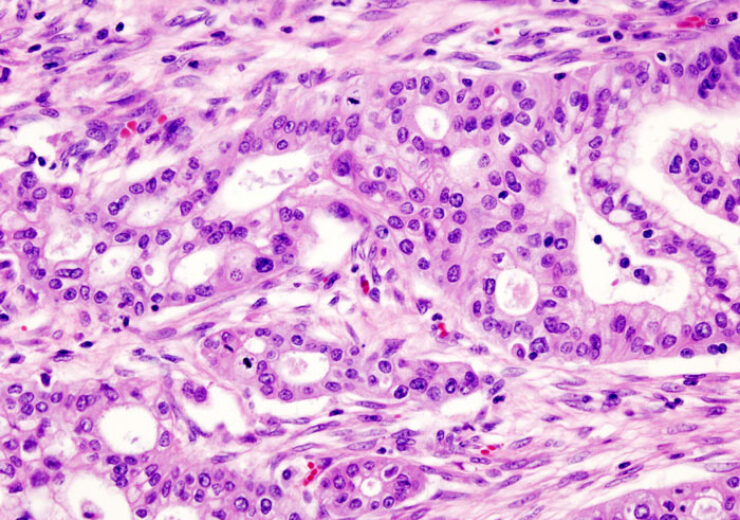The DNase platform targets neutrophil extracellular traps to improve the outcomes of prevailing treatments, including immunotherapies

The systemic DNase programme from Xenetic Biosciences will initially target indications like pancreatic carcinoma and others. (Credit: user:KGH/Wikimedia Commons)
Xenetic Biosciences and Scripps Research Institute (TSRI) have signed a research funding and option agreement to advance the development of the former’s DNase platform and DNase-armoured CAR T programme.
Scripps Research Institute is a California-based independent, non-profit biomedical institute that aims to advance human health through discoveries that address unmet medical needs around the world.
Under the agreement, the systemic DNase programme is anticipated to be assessed in combination with existing therapies to treat pancreatic carcinoma and other locally advanced or metastatic solid tumour indications.
The agreement will also help advance Xenetic’s existing intellectual property and DNase-based oncology programme towards phase 1 clinical development.
According to the terms of the agreement, the biopharmaceutical firm has the option to gain an exclusive license to any new intellectual property resulting from the DNase research programme.
Xenetic CEO Jeffrey Eisenberg said: “Scripps has been a long-standing valued collaboration partner of ours and we are pleased to further extend our relationship through this agreement for our DNase-based oncology platform.
“We believe that the team at Scripps is well-equipped to provide valuable insight and generate meaningful data in our preclinical development program as we work to advance toward the clinic.
“We look forward to exploring a platform technology that has the potential to generate much needed therapies for pancreatic carcinoma and other locally advanced or metastatic solid tumours.”
Xenetic has designed its DNase-based oncology platform for targeting neutrophil extracellular traps (NETs), which are web-like structures made up of extracellular chromatin.
NETs are discharged by activated neutrophils in response to microbial or pro-inflammatory challenges, Xenetic said. They are also associated with cancer progression and resistance to cancer treatments.
Xenetic’s platform is designed to improve the outcomes of prevailing treatments, including immunotherapies.
Additionally, the firm is advancing the development of its customised CAR T platform technology, XCART.
The platform is intended to develop cell-based therapeutics that target the B-Cell receptor on the surface of a patient’s malignant tumour cells for the treatment of B-Cell lymphomas.
